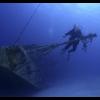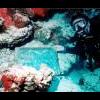This thread has made me do a little thinking, and at the risk of hijacking the thread, I'd like to discuss te money aspect of gear purchases. If a moderator feels this should be a new thread, I won't object.
Scuba gear is pretty expensive stuff, and because there are so many bits of gear you need it adds up to a rather large bill by almost anyone's measure. As a result, your budget and your attitude about money impacts your gear buying decisions, particularly as a new diver. Also, as a new diver the tendency is to think that you can buy this stuff once and be done with it. As a practical matter that seldom turns out to be the case.
When I first started diving, I bought affordable recreational gear. Since my son was also diving and we had some uncertainty about what we were buying, we would buy one of something, try it for awhile, then either switch to something else, or buy a second one if we were happy with the first purchase. I also had the view that the only diving I wanted to do was warm water diving, so we wound up with our two recreational set ups and that was it for awhile. I thought I was done.
Later I found I could take more frequent trips and generally there was one piece of gear I found least satisfactory, so for each trip I bought a replacement for something. I started to think in terms of an annual gear budget. This took me through an upgrade cycle.
Then a few years ago I decided I wanted to do local, cold water, diving too. Fortunately, the upgraded gear was all good stuff, capable of handling local conditions. As a result, I didn't need new regs, but I did need exposure protection, tanks, etc. I started adding stuff a bit at a time. I also decided to take some more classes. Each class seemed to require some additional piece of gear I didn't have.
As a result, I now think in terms of a regular budget for scuba gear. I don't think of it as a one time purchase.
If you are just starting scuba, particularly if you are a warm water diver living in a cold water area, it is rather hard to predict how your interest will develop, or how much you will actually be able to participate in the sport. You need pretty much everything and don't know one brand from another. You don't want to make bad purchases. Rentals seem overpriced.
So here is what I recommend whether we are talking about regs, a BC, a computer, or any other expensive piece of gear: Try to borrow gear. Test gear in the LDS pool if they allow that. Rent gear even though it may seem expensive. Buy one piece, not everything.
Several things will occur. You will get to know what kind of diving you will be doing, and you will get to know your gear preferences. After you have done this and you are ready to buy gear then follow these rules for the expensive parts:
1) Spend money to get better regulators than you think you need. The regs are life support. If you get high end regs and quit diving you can sell them later, but nobody is going to want a used, bottom quality, regulator. This is the last place to economize.
2) For the computer, get an inexpensive nitrox computer. You don't save much on an air only model, but you don't want to spend a lot on something that will rapidly become technically obsolete. If you stick with the sport you may eventually upgrade, but by the time you need to buy today's whiz bang computer the price will have dropped, so this is an area where you can economize on your first purchase. When you do upgrade that inexpensive nitrox computer can serve as a backup bottom timer.
3) For the BC your major decision is whether to go BP/W set up or conventional. Fortunately, the price is not terribly different. I suggest the BP/W because if you decide you want to do different types of diving, you can just get another wing and not another entire BC, but you'll spend roughly the same amount either way.
4) Exposure suit. This has to be specific to the diving you are doing and has to fit. Rent until you are absolutely sure you know what you want. For those who must buy and are going to be doing warm water diving, I suggest a 3mm. A few may find it too heavy, or not heavy enough, but it will be okay for most for a winter trip to the Caribbean. However, I have seen people in .5mm and 7mm suits diving together so I really suggest renting until you are sure.
5) Try not to buy everything at once. Borrowing gear is not difficult if you get to know some local divers, especially experienced divers who have accumulated a bunch of excess stuff, because they went through the same drill and wound up upgrading everything a couple times. For instance, I have a bunch of different wings. I have a variety of tanks. I've lost count of how many pairs of fins are in the basement. Since my son dives we tend to have two of everything. My son's friends have borrowed my gear and gone diving with him and I have loaned gear to people I know. Right now my wife is learning to dive and the only thing we have had to buy is a mask because she needs prescription lenses. Everything else we already had. After she has been diving a bit we will start to get personal gear for her. It will be pink.

If you live in my area and want to borrow something that I already have, let me know and we'll meet out at Dutch Springs.
I hope this helps a few of you who are facing that major first set of gear. That initial set of gear is expensive because you don't know if you will dive enough to get value out of it, you don't know the type of diving you will do, and you need everything at the same time. If you can follow these suggestions, you may still make some wrong purchases, but you'll make fewer of them.
Edited by Geek, 16 March 2007 - 07:57 PM.


















